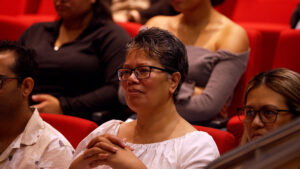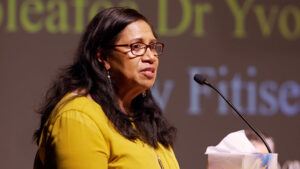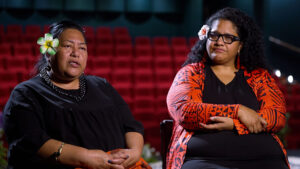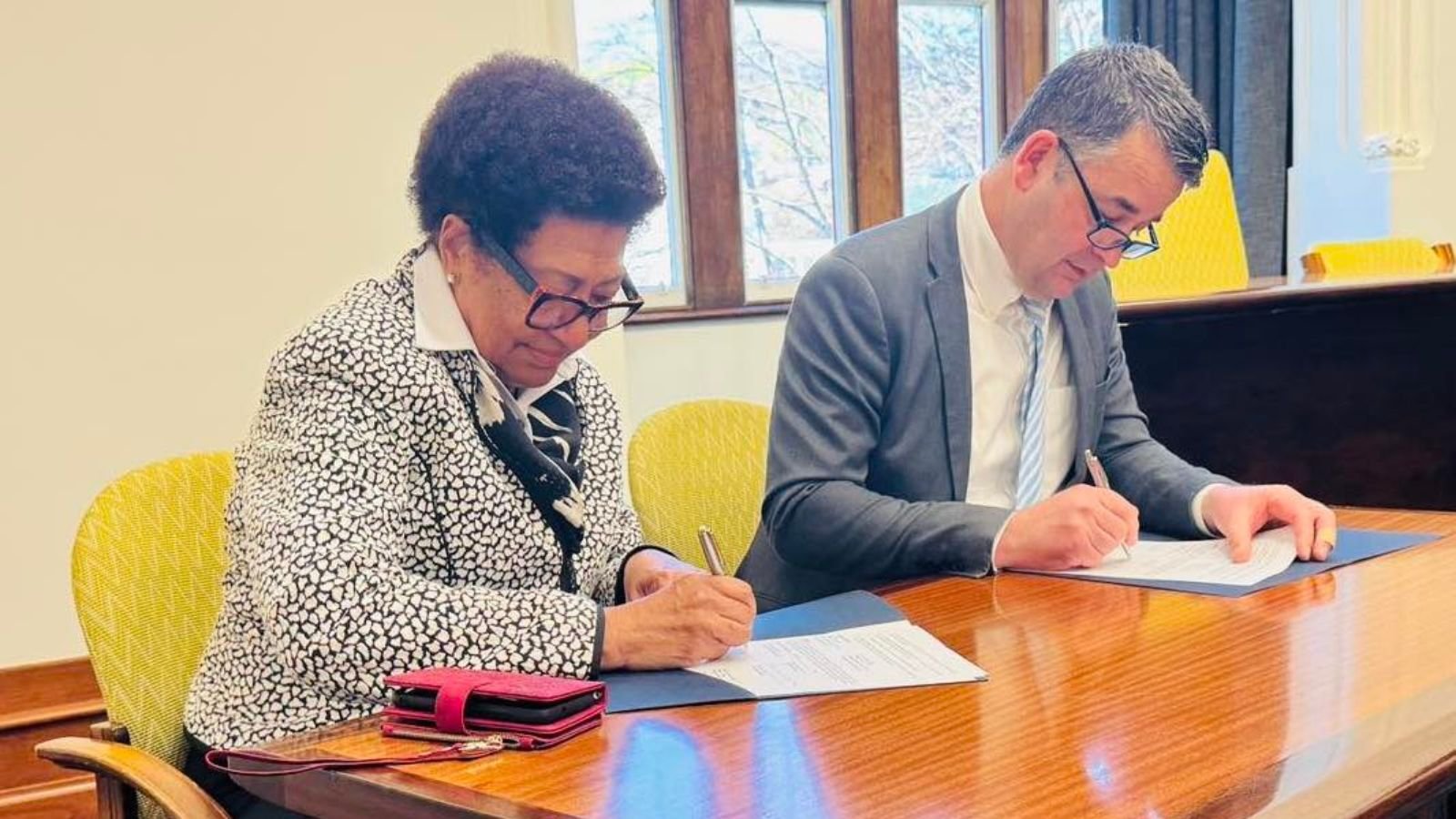Public Interest Journalism funded through NZ On Air
When Maureen Mariner Fepulea’i first decided to take up tertiary education in her 40s, she was apprehensive.
She remembers feeling the insecurity, imposter syndrome, thinking “I’m not good enough”.
“I know of women who are ridiculed for thinking they can return at that age. How are you gonna pay the bills? Who’s gonna look after the kids? Who’s gonna cook? Who’s gonna have dinner on the table?”
Maureen went on to graduate with a degree in Applied Counselling. But she knew if she was feeling this way as a mature student, then other Pasifika women would be feeling the same way too. And in response she created the group IQ Talanoa, or Indigenous Queens Talanoa.

Pasifika women from all walks of life have come to break bread, to celebrate and commiserate together, and their stories and experiences are what unites them.
It has led to the group’s second literary release, Our Koviki Tears: Love from our Indigenous Queens and Kings. A collection of poems and written pieces, Pacific women, men and children have shared their experiences of the lockdowns.

“I’m just gonna give it to you straight…it’s not good.”
As a nurse, Miliama Tapusoa was all too familiar with death.
But when she tested positive for Covid in April 2022, she faced her own.
“I’ve had Lupus for such a long time, I actually know my body really well,” Miliama says.
“I said to my son, you need to take me to the hospital.”
Within the three hours, Miliama went from her home in Porirua, to Kenepuru Hospital, to the emergency department in Wellington, “and not just anywhere, but in the resus room in the emergency,” she recalls.
The ICU doctors were called, and knowing Miliama’s background as a nurse, they were blunt.
“When the female doctor arrived, she said to me, ‘I know that you’re a nurse so I’m just gonna give it to you straight…it’s not that good.’”
“I woke up the next day…seeing this bright light thinking, ‘am I gonna see Dad?’ Until I focused my eyes a bit more and realised it’s the lights on the ceiling,” she laughs.
“That’s good, I’m still here.”
Her poem Tomorrow is based on this experience and Miliama is glad to have a platform like IQ Talanoa to be open and honest about life.
“You know on TV and in our spaces, sometimes there’s a lot of glossing over of events,” Miliama admits.
“The reality is, there are really difficult times in our lives. And sometimes we have to acknowledge that and have some understanding around it because with that understanding, we can have some acceptance.”
Pasifika male writers eager to have their voices heard
A hushed awe envelops the Hawkins Theatre, as actor/director Heto Ah Hi gives a stirring performance of The World at my Feet.
“Having survived child sexual abuse, suicide, youth gangs coupled with multiple trauma in my life, I learned how powerful I am to have the soft skills and tools to navigate almost anything in life,” he reads.
“That’s why I’ve got the world at my feet.”
Written by an anonymous poet, the piece is one of many contributions by male writers, a first for IQ Talanoa. After the release of their first book in 2020, Maureen says she was approached by their male supporters, asking if they could share their pieces too.
“It’s almost sacred,” Maureen says thoughtfully of the male writers.
“They’re not writing about nice things. They’re not writing abstract. They’re writing about the real and the raw and I’m thinking these stories will resonate with so many others and it will also give other people another perspective to see our kings through.”

“I’m sharing the challenges that we face as New Zealand born kids who have to advocate on behalf of parents, aunties, uncles…”
Christina Epati is another contributor to Our Koviki Tears, and her experience of the lockdown was perhaps one of the most well-documented.
After holding a church gathering at an AOG in Māngere, Christina’s whanau became the centre of the AOG Delta subcluster in August, 2021.
Over 50 of her family members were affected, and four were hospitalised, including her parents.
“We pretty much took control of making the decisions to keep our family safe during that time,” Christina recalls.
“When you look back now, it was horrific to think that your parents contributed to New Zealand society since the 70s, and then to turn up to the hospital in 2021 and there be no interpreters on site to support with language…it was difficult for them to understand some of the processes and what Covid was.
“Some of the frustrations…systemic, racial tensions, the underlying stereotypes. I’m sharing the challenges that we face as New Zealand born kids who have to advocate on behalf of parents, aunties, uncles who are not quite sure of how to navigate the systems and processes when having to access different services.”
Maureen is aware her degree in Applied Counselling has paved the way for IQ Talanoa, creating a safe space for these Pasifika women and men to share their truths in the pages of Our Koviki Tears.
“I think words are so powerful and so if we internalize them, they can suffocate us. I really believe that” Maureen says.
“That’s why we are trying to invite as many people as possible to write. You’ve kind of brought it out and you can burn that paper up, rip it up, whatever, but now you’re not carrying it all in internally.”
Quotes have been edited for length and clarity.











